Why do ants come in the house? Pest experts reveal the reasons and how to remedy each pesky situation
Get to the bottom of why ants come into the house and harness the knowledge to bolster your pest control plan

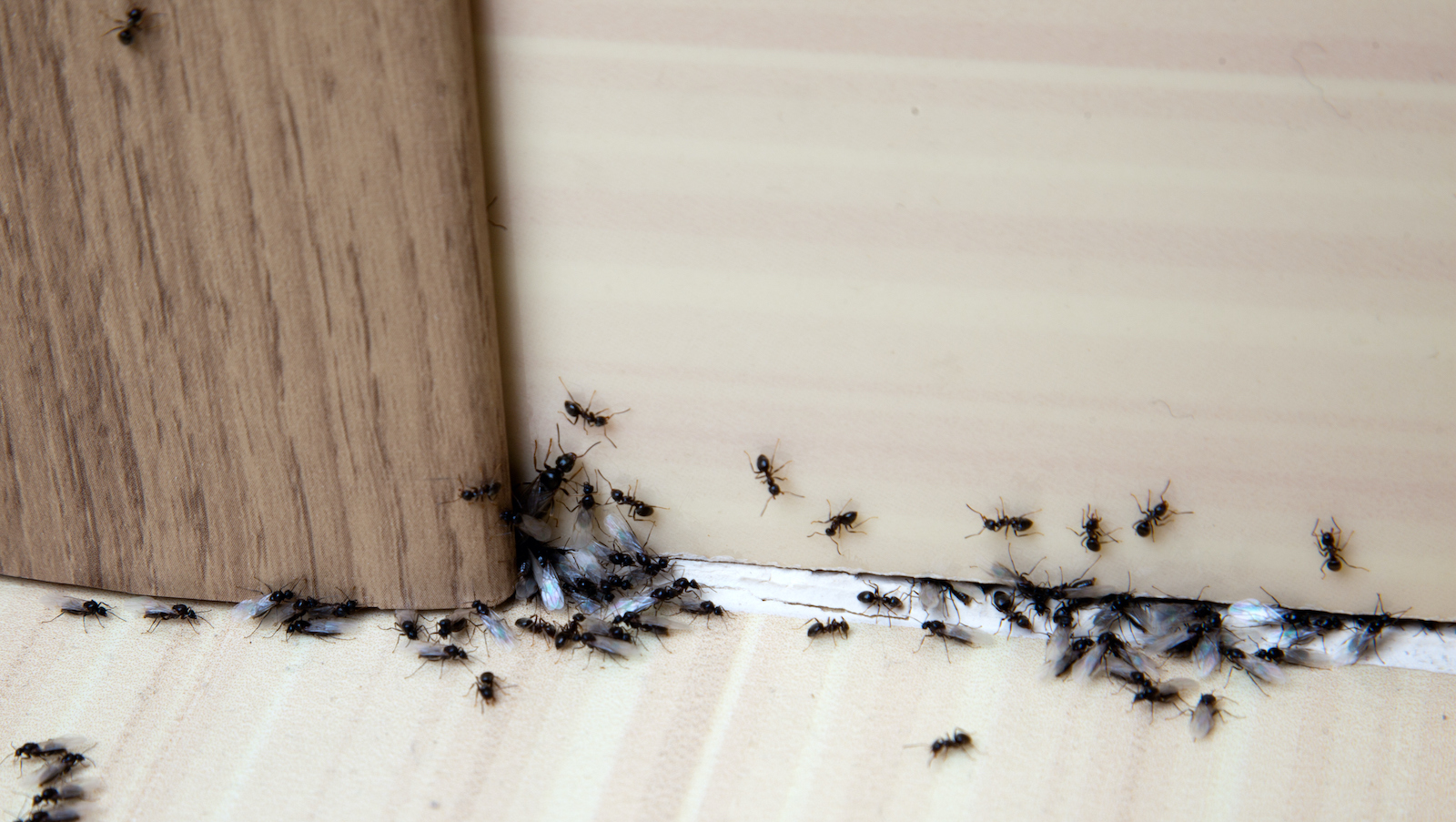
Why do ants come in the house, exactly? We're sure you make a great host, but we'll bet these six-legged critters with antennae aren't on your guest list.
Our homes have much of what ants need including food, water and shelter so it's no surprise ants want to revel in the comfort of your space. However, there are a multitude of reasons why the ants are marching in, and our pros reveal the most common reasons these insects end up indoors, and how to tackle each one.
Learn how to get rid of ants so they don't return with friends in tow and you can do away with these unwanted visitors.
Why do ants come in the house?
It's important to learn how to identify bugs in your home in order to tackle each one successfully.
"Proper identification of the type of ant species allows for the proper treatment and an effective ant control process," insists Ben McAvoy, owner of Insectek Pest Solutions.
Meanwhile, Dr. Hamilton Allen, Ph.D., BCE - Vice President of Technical & Safety at Fox Pest Control, makes note of the most common visitors: "Worker ants are constantly on the move in search of food, shelter, and water. Your home contains the perfect combination of these elements for an ant colony."
But regardless of the types of ants that come crawling in, there are specific characteristics and traits that all ants have in common, mainly attracting one another with pheromone trails. That's how they get the good word out about your digs.
Get small space home decor ideas, celeb inspiration, DIY tips and more, straight to your inbox!
"It’s super important to disrupt these pheromone trails to prevent more ants from entering your home or to prevent the return," says Nicole Carpenter, president at Black Pest Prevention. "I recommend creating homemade mixtures using products with strong odors to eliminate these pheromone trails."
Nicole and other pest control experts are unanimously in favor of using natural products and skipping out on harsh chemicals whenever possible. Luckily, we're wrapped up the things that repel bugs to help you on your way without having to spend loads, as these items are probably already in your kitchen cabinets.
"Mix equal parts of vinegar and water and spray it in spots where ants have been noticed," she says. "You can also use lemon juice or peppermint oil by adding a few drops of them to water and spraying it around areas of ant activity."
But before you treat them, you have to figure out how they're getting in. The culprits below might be to blame. Keep your pest control toolkit handy, folks.
1. Available food sources

Ben notes that ants will invite themselves in if there's an available food source, such as open containers or crumbs, so it's important to be extra tidy. If you need, we have expert-backed tips for how to deep clean a small kitchen so ants don't stand a chance.
"When it comes to food, ants are attracted inside homes because of poor sanitation, like leaving dishes unwashed in the sink, crumbs on countertops and floors, or not taking out the trash," adds Ian Williams, BCE — Technical Services Manager at Orkin. "Most ant species love sugar, fats and carbs."
What that means is cleaning up, sealing up, and taking a gander once the coast is clear to ensure that all ants are truly gone.
"The pros at Orkin recommend insecticide baits because foraging ants will take the bait back to their nest, killing the entire colony," Ian adds. "However, some products labeled for ants may only kill or displace workers. For some species of ants, this can cause ants to spread throughout a home rather than killing the colony."
We recommend Terro Liquid Ant Bait from Lowe's which are pre-filled, ready to use and highly rated at five stars by over a thousand shoppers who've used it with success. It contains borax, which is toxic to insects and messes with their nervous system and not a chemical they become resistant to. Hurrah!
2. Bad weather
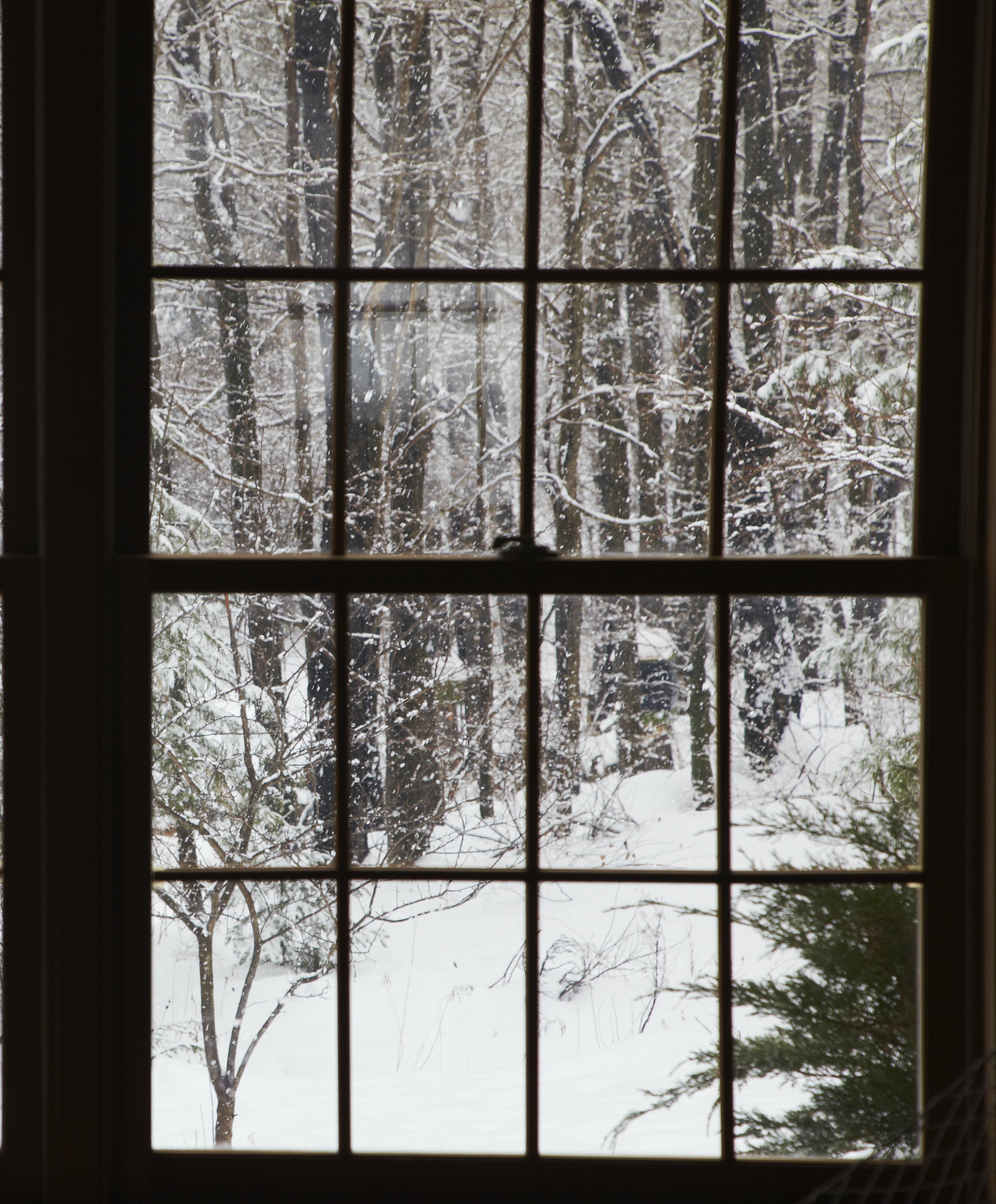
If you're feeling the chill and figuring out how to warm up a small room quickly, chances are nearby ants are hating the cold too, making your warm home appealing.
"Ants are cold-blooded creatures that rely on the environment to regulate their body temperatures," says Cody James Pace, associate certified entomologist and market technical director at Terminix. "In the winter, they may seek out the cozy interior of your home in order to avoid the cold. Additionally, some ants, such as carpenter ants, that often nest in dead wood, may find it hard to resist the structures that we build."
This doesn't mean you can't get cozy during winter, it just means you'll have to take extra precautions to stay clean and eliminate enticing factors to ants, like easily available food, moisture, and greasy counters. Crucially, you'll need to check your doors, windows and walls for cracks or gaps ants could use to get in.
"Most ants also need to find an area that is great to nest in, somewhere protected from elemental extremes, like temperature and moisture, and away from potential predators," Ian adds. "Since we use our homes for the same things, it makes sense that they would try to move into our walls and other voids to set up shop."
Try a waterproof, crackproof sealant to close up any tiny gaps ants could use to traipse into your home, such as Gorilla Waterproof Caulk and Seal on Amazon which is suitable for indoor and outdoor use, won't crack and is weather's resistant.
3. Clutter to shelter in

There's a reason why tips on decluttering are so important: clearing away your items will prevent comfy, safe hangout spots for unwanted insects.
Ants thrive around clutter, as it gives them more places to hide away," Cody says. "Regularly sweep and wash floors and make sure to clean up your pets bowls after they've eaten."
Our edit of the best cleaning supplies is a good resource to have in your arsenal, not just in a pest-related situation, but any situation. And of course, use whatever you think is necessary to help keep your garments, nick knacks, and other items organized.
4. Open cracks and crevices
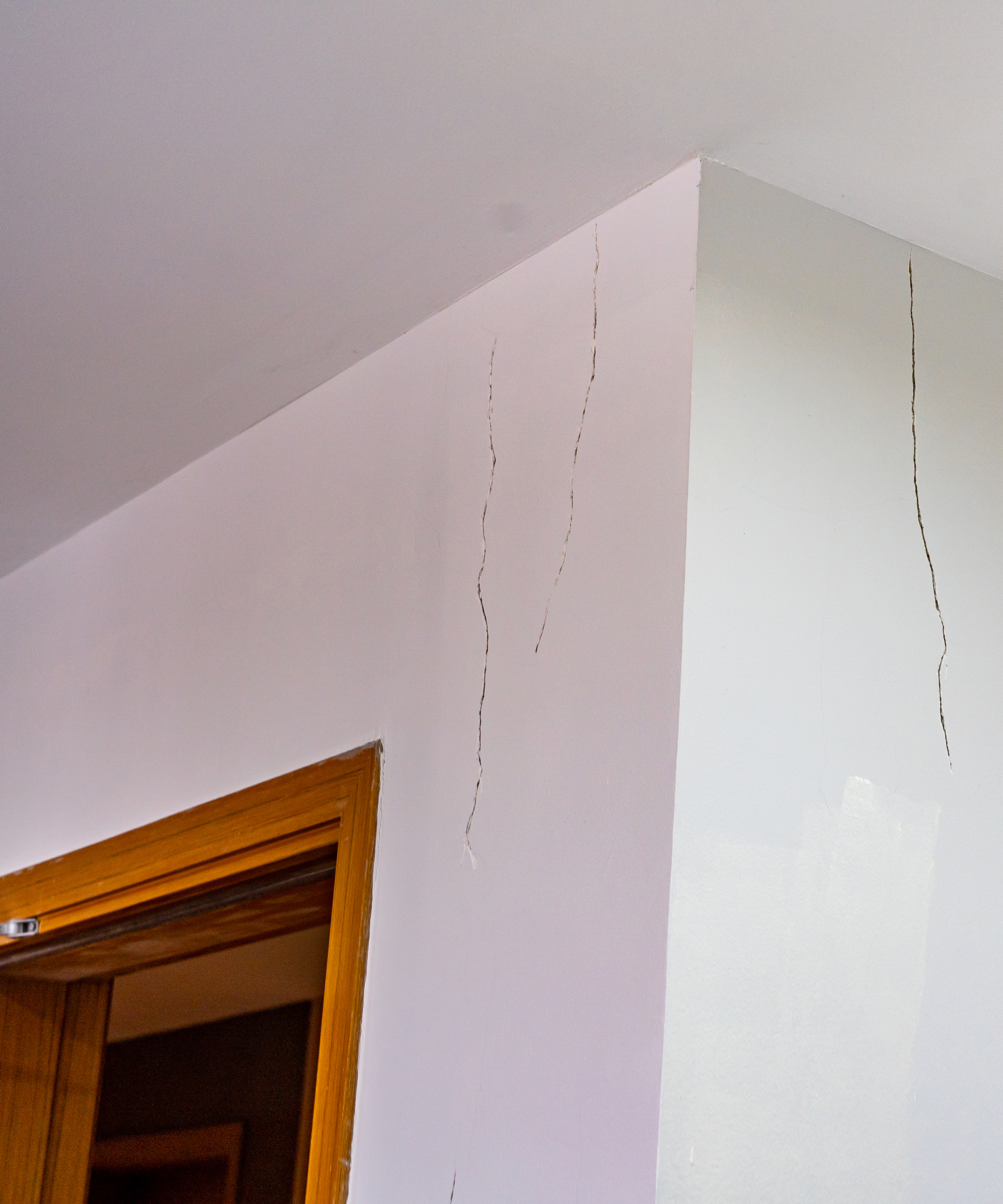
If you have ants, there's a good chance they're walking in rather easily thanks to cracks throughout the home. Invest in a Drywall Patch Repair Kit from Amazon.
"It would be easier for ants to enter your home if you have many gaps in the structure, Nicole says. "Crevices in door frames, window sills, and foundation walls increase the likelihood of ant infestation in a home."
"Remember to treat hidden areas as electrical outlets and switch plates, as they can also be the entry points for ants," Ian says.
5. Grease
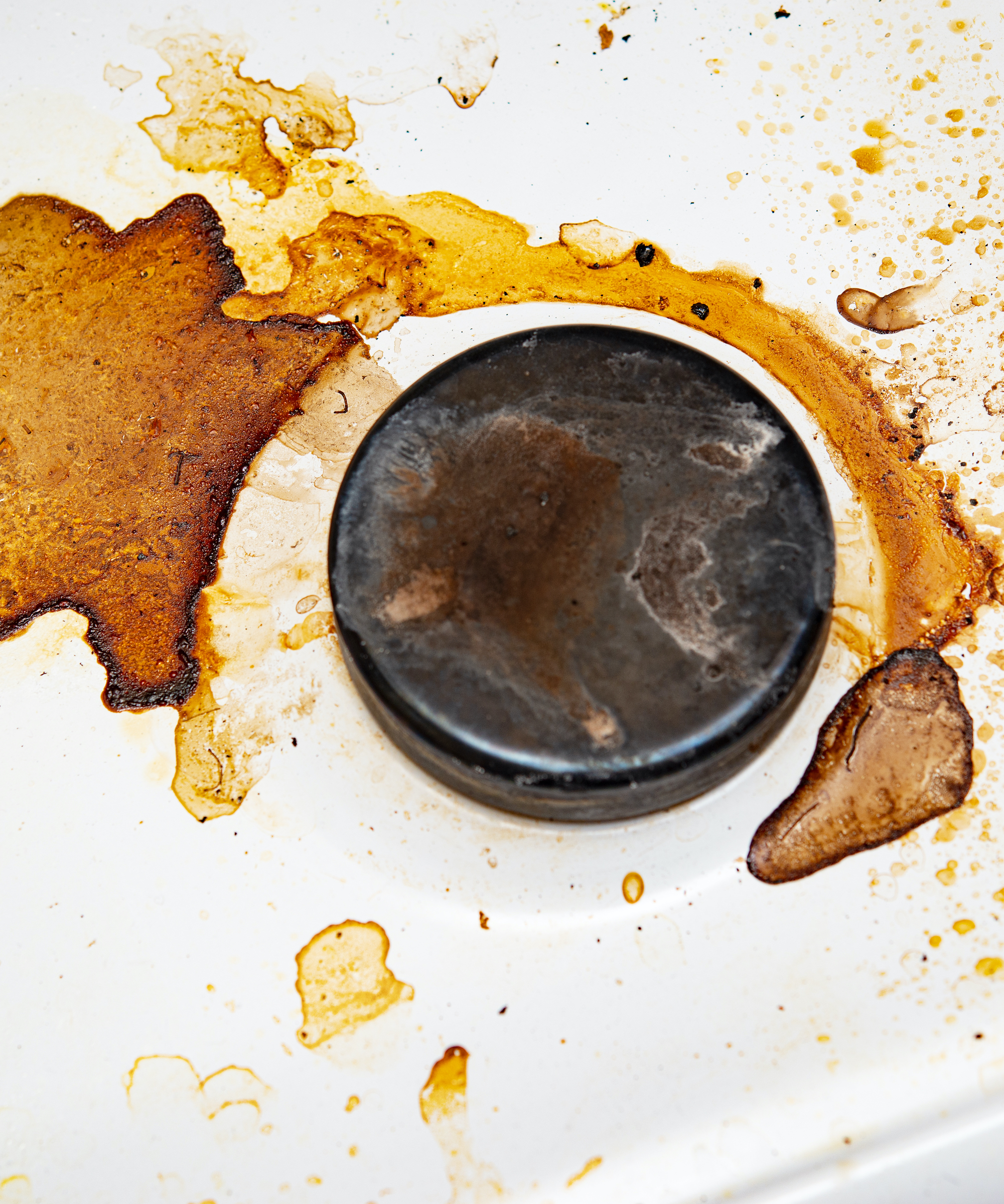
After making a hearty dinner, it's important to clean up behind you, lest you want ants...or other unwanted critters marching in to have a bite.
"Ants are attracted to grease, especially around the stove and countertops," says Jennifer Hankey, founder & CEO at The Green Queen. "Keep the kitchen clean and daily wipe up debris and de-grease around the stove. Check for any leaks around your home to avoid this attraction."
If grease is the culprit, the problem can be easily solved with natural solutions.
"Ants can be easily treated organically without harsh chemicals with the rise of food allergies, skin conditions, and environmental irritants, it’s more important than ever to use organic means to keep ants and other insects outside where they belong," Jennifer adds.
By the way, we have plenty of insight on how to get rid of ants in the kitchen, just so you know!
You can clean with vinegar all around the whole to tackle grease, grime and everything in between and it's remarkably effective at cutting through dirt, as is cleaning with salt. Both are cheap and readily available and we highly recommend these household items that are natural and easy to store and use for multiple jobs.
6. Leaks
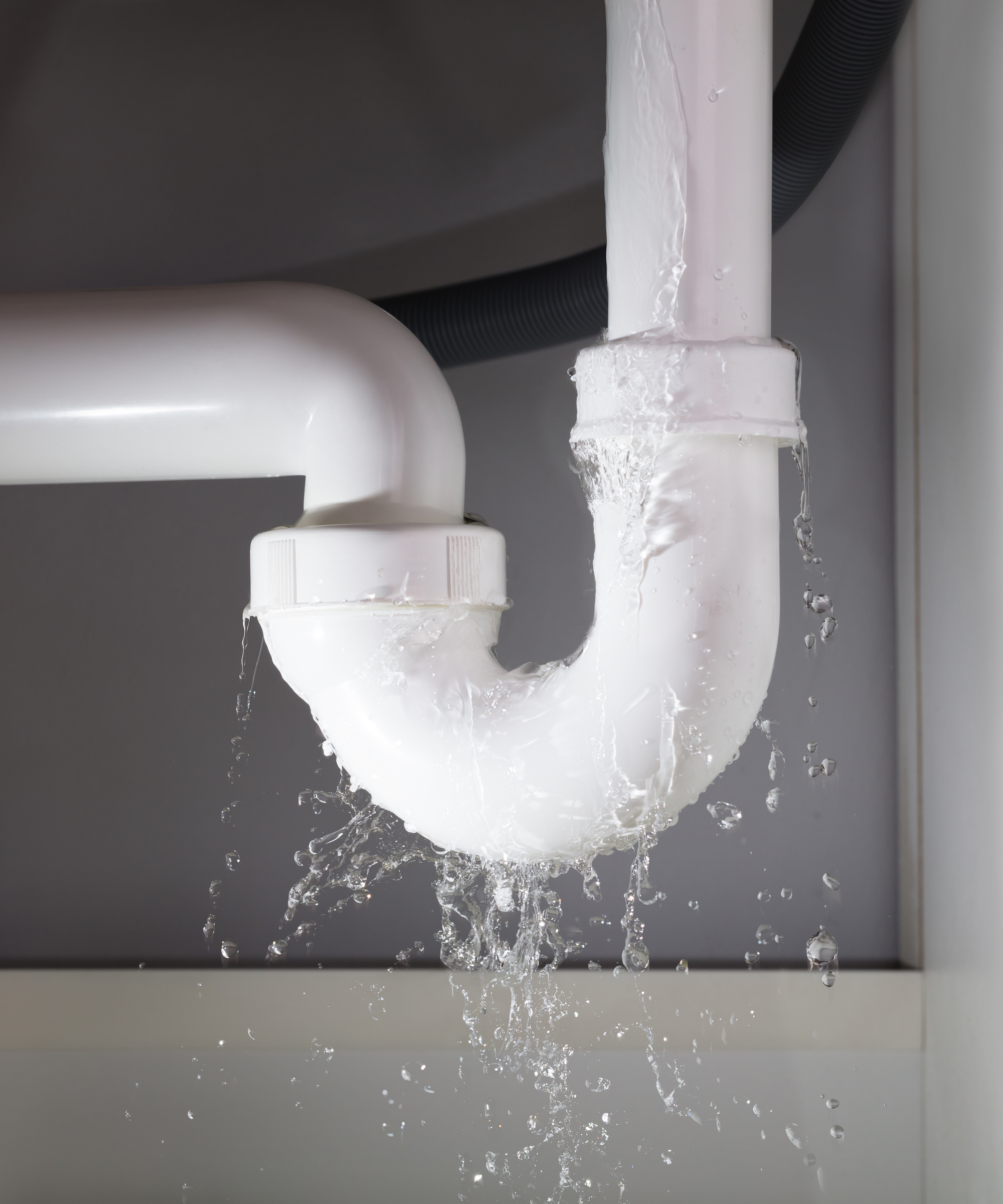
Even if you keep you know exactly how to lean your house, plumbing problems and leaks can attract ants, which gravitate toward moisture when they need to lay eggs.
"Some species, such as the tropical import known as the pharaoh ant, must nest close to a reliable water source," Cody notes. "Other ants, like the carpenter ant, are attracted to damp wood because it can be more easily excavated for nesting, and and a leaky pipe can provide enough moisture to sustain an entire infestation."
Ian adds, "Carpenter ants specifically pose a threat to the structure of homes. They’re drawn to wood that has been damaged from water leaks, firewood stacked close to a home, and rotting logs."
Additionally, moisture can be a kitchen issue, according to Dr. Allen, who suggests keeping an eye on your fridge, as it could lead to issues.
"If your refrigerator has exterior condensation, check your temperature settings and/or the number of items inside," he says. "Too many food items can lead to in improper seal and the escape of cool air to the outside."
Meet the experts

Nicole Carpenter started working at Black Pest Prevention when she was in high school. She continued working there while attending N.C. State University and eventually became the president. Black Pest Prevention is a company that helps with pest control in Charlotte and serves both North and South Carolina.

Jennifer Hankey, M.Ed, is the President and CEO of the Green Queen Pest & Cleaning company. As an avid researcher and teacher in the field of toxins and their effects on children, she’s educated thousands of parents, teachers and professionals about the dangers of chemicals in everyday products. Hankey uses her knowledge and working relationships with sustainable, health-conscious companies to provide eco-friendly services and solutions for schools on a budget.
FAQs
What naturally drives ants away?
If you're looking for natural deterrents, ants loathe vinegar, lemon, or natural oils like peppermint oil. If there's an area where they're venturing in, put one of these solutions down to get rid of them. You can make your own cleaning solutions with citrus peels.
But keep in mind, you'll likely have to reapply in order to keep them out permanently. Should this not suffice, call pest control experts to assist with the matter. You'll know it's time if your chosen methods keep failing, or simply, you're feeling overwhelmed by the task and the ant infestation is impacting your wellbeing.
Why are there ants in my room if there is no food?
Though ants will make their way to a food source, there are other factors driving them into your home. They tend to burrow themselves in clutter, so if you have a mess lying around — even if there's no food — there's a chance they can make their way in. In addition to being attracted to crumbs, ants will make their way over to water sources, should a pipe leak, for example. Any area that's hot, moist, and a bit unkempt is right up their alley.
How to figure out where ants are coming from?
More than likely, ants are opting for a room that's warm and moist, so your kitchen and bathroom are great places for them to set up shop. Try to find a problem, such as a leak or an open container of food, that could be attracting them, or take a look at our advice on all the places you're forgetting to clean in your bathroom or bedroom for some sage ideas for places to tackle.
You should have a look behind larger furniture and appliances, or get assistance from professionals if you're unable to access those spots yourself. Call pest professionals if needed.
Learn about carpenter ants and keep all bugs away with the best cleaning hacks for tackling every room in your home, and in turn, keeping critters away.

Pleasure to meet you! I'm Danielle, a content editor at Real Homes who loves scoping out interior trends. I've specialized in lifestyle writing and editing for 10 years with a focus on events, food, and books, among other areas. When I'm not working, I'm usually cooking, reading, or searching for a new project for my apartment.


